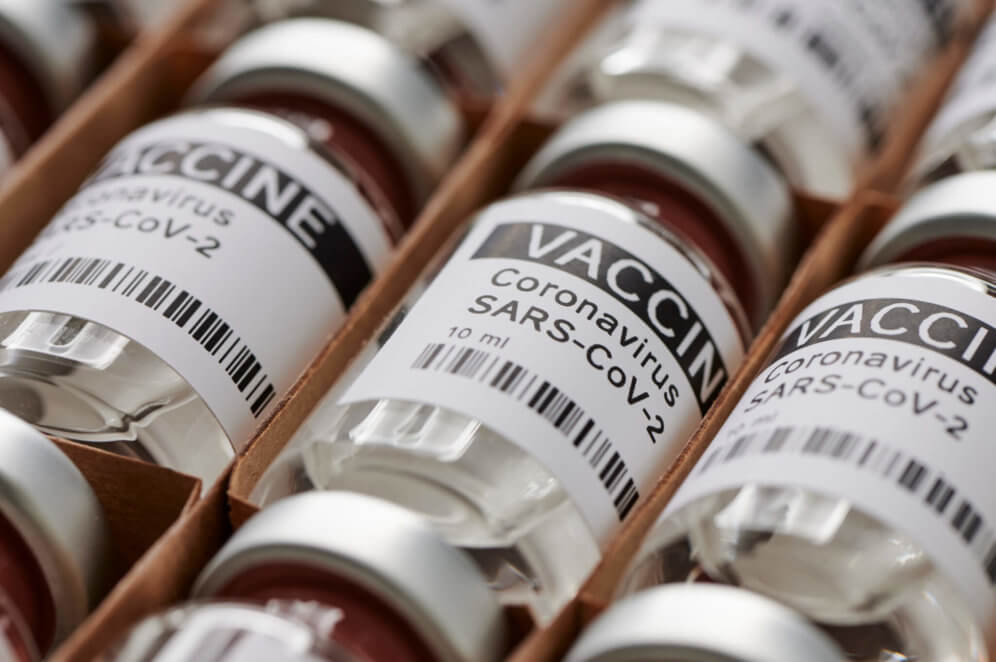
Vaccines from Pfizer and Moderna are now available in the Commonwealth. With that in mind, we wanted to answer some frequently asked questions about vaccines.
Now that both Pfizer and Moderna’s vaccines have been approved, we’ve been getting questions. What does vaccine distribution look like here in Virginia? Who qualifies? When do I qualify? How will I know? Those are all questions that made their way into our DMs and email. Over the last few weeks, we reached out to UVA professors, medical doctors and hospital officials, to get answers.
Here’s what we know so far about Virginia’s vaccination program.
When can I get the vaccine?
First, we need to include a note. In Virginia, hospitals and health departments are handling distribution of the vaccine. All districts move at their own pace. So one may be further ahead than another, simply because it has fewer people to vaccinate.
But with that being said, Virginia is distributing the vaccine in a phased process. Currently, most of the Commonwealth is in Phase 1A. As of Jan. 11, a handful of districts moved into 1B.
- Phase 1A involves healthcare workers in the district, along with long-term care facility residents and employees.
- Phase 1B includes firefighters, police officers, hazmat workers, grocery store workers, food processing plant workers, bus drivers and transit workers, mail carriers, individuals in the food and agriculture business and people aged 75 and over. Also, those age 16 to 64 with an underlying medical condition.
- Phase 1C covers people aged 65 to 74.
- Phase 2 includes all people aged 16 or older, not in Phase 1, but recommended for vaccination.
As we mentioned, 11 districts made the jump to Phase 1B on Jan. 11. They are Alexandria, Arlington, Cumberland Plateau, Fairfax, Lenowisco, Lord Fairfax, Loudoun, Mount Rogers, New River, Prince William and Roanoke City and Alleghany. If your district isn’t on this list, then it’s still in Phase 1A.
If you’re not sure what phase you qualify for, the Virginia Health Department has a tool to help.
How can I get vaccinated?
To answer this question, we recommend two tools. First, local health districts are organizing vaccination clinics. They’re the best option to find out when the next one in your area is. But you may be asking what health district you’re in. To solve that problem, use this Virginia Health District Locator Tool.
Once you’ve found the right district, just simply call or visit their website to find the next clinic.
Who is making the COVID vaccine?
While there are many trials underway and companies and countries continue to work, the two groups with currently approved vaccines are Moderna—which partnered with the National Institutes of Health—and Pfizer, which partnered with the German company BioNTech. Pfizer’s approval came first, in early December, followed by Moderna several weeks later. Each company released data from their trials before receiving federal approval. The material showed their vaccines were over 90% effective in protecting people against coronavirus infection.
Is the vaccine safe?
The vaccine development process is a rigorous, comprehensive process that begins with testing new vaccines on animals, such as mice or monkeys, to see if it produces an immune response. Scientists then give the vaccine to humans in three separate phases, beginning with a small number of people in phase one in order to test safety and dosage and determine if it triggers the immune system. In phase two, scientists give the vaccine to hundreds of people across different age ranges and at different levels of health, in order to see how the vaccine behaves among different populations. In the third and final phase, tens of thousands of people receive the vaccine, and scientists compare their health outcomes with test subjects who received a placebo. This effectively shows whether the vaccine protects against COVID-19 and whether the vaccines produce any rare or dangerous side effects.
The process is thorough and the bar to clear for FDA approval is high, incentivizing companies to take a safe, conservative approach. Multiple companies, including AstraZeneca—which conducted its trials in partnership with Oxford University—and Johnson & Johnson temporarily paused their COVID vaccine trials to investigate potentially adverse side effects in one person in each trial, before ultimately resuming them after the unexpected illnesses could not be linked to the vaccines.
As part of their applications to the FDA, both Moderna and Pfizer included two months of follow-up safety data from their Phase 3 human clinical trials that were conducted by independent bodies, such as universities. By September, Pfizer had enrolled 44,000 participants in its trial without a single serious safety issue being reported.
Some participants in the trials did experience side effects, including fever, muscle aches, headaches, and fatigue after receiving the shots, but those symptoms generally did not last more than a day. Also, such reactions are usually a sign that the body’s immune response is being activated as intended.
When will children get a vaccine?
Right now, the vaccines have only been approved for those ages 16 to 64. According to Dr. Anthony Fauci, director of the National Institute of Allergy and Infectious Disease, children may not be vaccinated before this fall. The reason is that testing trials just started and will likely take up to six months at least to complete. Further trials are needed because children can have different immune responses to vaccines than adults.
What will the vaccine cost?
Nothing. The federal government has promised that vaccines will be free to all Americans.
Do MMR vaccines really protect you against COVID?
Recent research has shown that the Measles-Mumps-Rubella vaccine may offer some protection against being infected by the coronavirus and reduce the severity of symptoms among those diagnosed with COVID-19.
While there could be a relationship between the MMR vaccine and COVID, doctors still say that there’s not enough evidence to recommend adults get booster shots. Instead, they recommend that everyone get the COVID-19 vaccine rather than relying on the possibility that the MMR vaccine offers some protection.
Will the vaccine be mandatory in the US?
It is unclear whether the federal government will attempt to mandate vaccinations. During the presidential campaign, President-elect Joe Biden said he was open to making a safe vaccine mandatory, depending on its effectiveness, the vaccine distribution process, and how rampant the virus was in the country. But he also admitted that it would be nearly impossible to actually implement a mandate.
“You can’t say, ‘Everyone has to do this,’” he said during an October town hall event.
The New York Times reported that President-elect Biden’s transition team is still discussing whether to try to institute a requirement, and state governments could also seek to pass vaccine mandates, though those would likely trigger legal battles.
Employers also have the right to force their workers to be vaccinated, but workers can request exemptions based on medical reasons or religious beliefs.
Brian Carlton is Dogwood’s managing editor. You can reach him at [email protected].
Politics

Biden administration bans noncompete clauses for workers
The Federal Trade Commission (FTC) voted on Tuesday to ban noncompete agreements—those pesky clauses that employers often force their workers to...

Democratic shakeup in Virginia primaries for governor, lieutenant governor
Richmond Mayor Levar Stoney quit his bid for governor and jumped into the race to be the Democratic nominee for lieutenant governor. The race for...
Local News

The zodiac signs of 12 iconic women offer insight into their historic accomplishments
Zodiac signs can tell you a lot about someone’s personality. Whether they’re an earth, water, air, or fire sign, these 12 categories (which are...

Virginia verses: Celebrating 5 poetic icons for National Poetry Month
There’s no shortage of great writers when it comes to our commonwealth. From the haunting verses of Edgar Allan Poe, who found solace in Richmond's...





